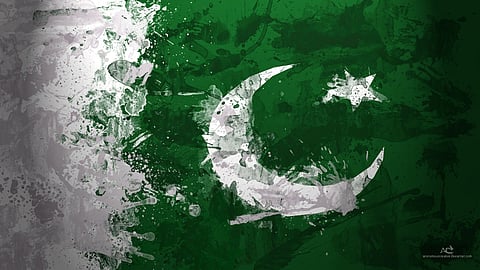
- Home
- Live Blog
- Breaking News
- Top Headlines
- Cities
- NE News
- Sentinel Media
- Sports
- Education
- Jobs

In Thursday’s general elections in Pakistan, the Pakistan Tehreek-e-Insaf (PTI) claimed victory not because it had won the number of seats required for a majority, but rather because it happens to be the party with the largest number of seats in the National Assembly. Pakistan’s National Assembly comprises a total of 342 members, of which 272 are directly elected, whereas the rest—the 60 seats reserved for women and 10 for religious minorities—are selected later through proportional representation among parties with more than five per cent of the vote. Thus, a political party can form the government only if it manages to win a minimum of 172 seats. By Thursday evening, the PTI had won 120 seats and was well ahead of the others, with Imran Khan slated to be the next Prime Minister of Pakistan. The PML-N led by Nawaz Sharif had 61 seats, while the PPP (Bhutto) won 40 seats after 49 per cent of the votes had been counted. Others (including Independents) had 49 seats. However, there are allegations of rigging and military interference. It is significant that the Pakistani army, which had deployed 34,000 soldiers to oversee the voting in the 2013 elections, assigned as many as 370,000 troops this time. Not surprisingly, one of the Union ministers of India, with hands-on security experience, has described Imran Khan as a “military candidate” apart from underscoring the allegations of rigging. R.K. Singh, India’s Minister of State for Power and a former Home Secretary said, “Imran Khan has always been a military candidate. It’s not us, but the people of Pakistan who are saying so. Observers have said that it (the election) was rigged. The military was there on the polling booths.” Singh accused the ANI of ensuring that Nawaz Sharif and his daughter landed in jail and did not get to campaign, and that there would be disturbances in the election meetings of Bilawal Bhutto. “I don’t see any change because as far as India is concerned, the important matters like export of terrorism by them are not going to change. The military used to decide this policy and they’ll do it now as well,” Singh added.
There are quite a few indicators as to why India may not have strong reasons to expect any major change in bilateral relations with Pakistan merely because of the change of guard. For years now, a proxy war has been going on in Jammu & Kashmir and there has been no let up in Pakistan’s export of terrorism to India. Pakistan must, therefore, take responsibility for the unfortunate decline in bilateral relations and do everything possible to improve relations. One of the reasons why this must happen without any delay is of greater concern for Pakistan than it is for India. Pakistan’s economic condition is somewhat more alarming than that of India. Pakistan simply cannot afford to make belligerence and conflicts with India its sole raison d’être. Of late, there has not been much else worth talking about in respect of worthwhile bilateral relations. Since India has not been an architect of the politics of conflict, and since its economy has been growing at a much faster rate than that of Pakistan, the existing bilateral relations have not affected India as adversely as they have affected Pakistan. It is high time Pakistan saw the very visible benefits of more cordial relations with its neighbours. It is high time Pakistan took the necessary steps towards more cordial and fruitful relationships with its neighbours and plugged the waste of precious time, money, energy and goodwill on conflicts that do no good to any of the stakeholders in any relationship.